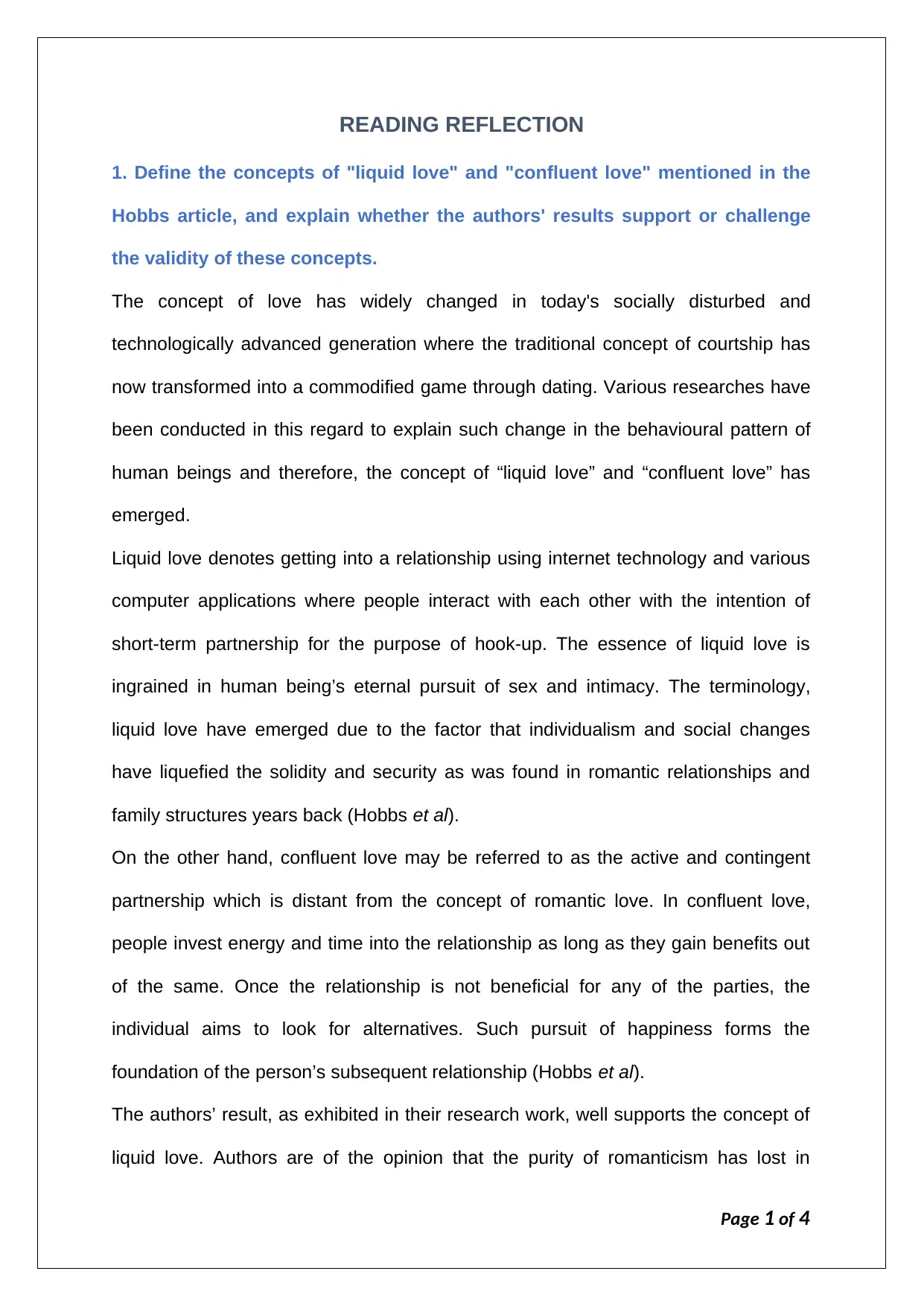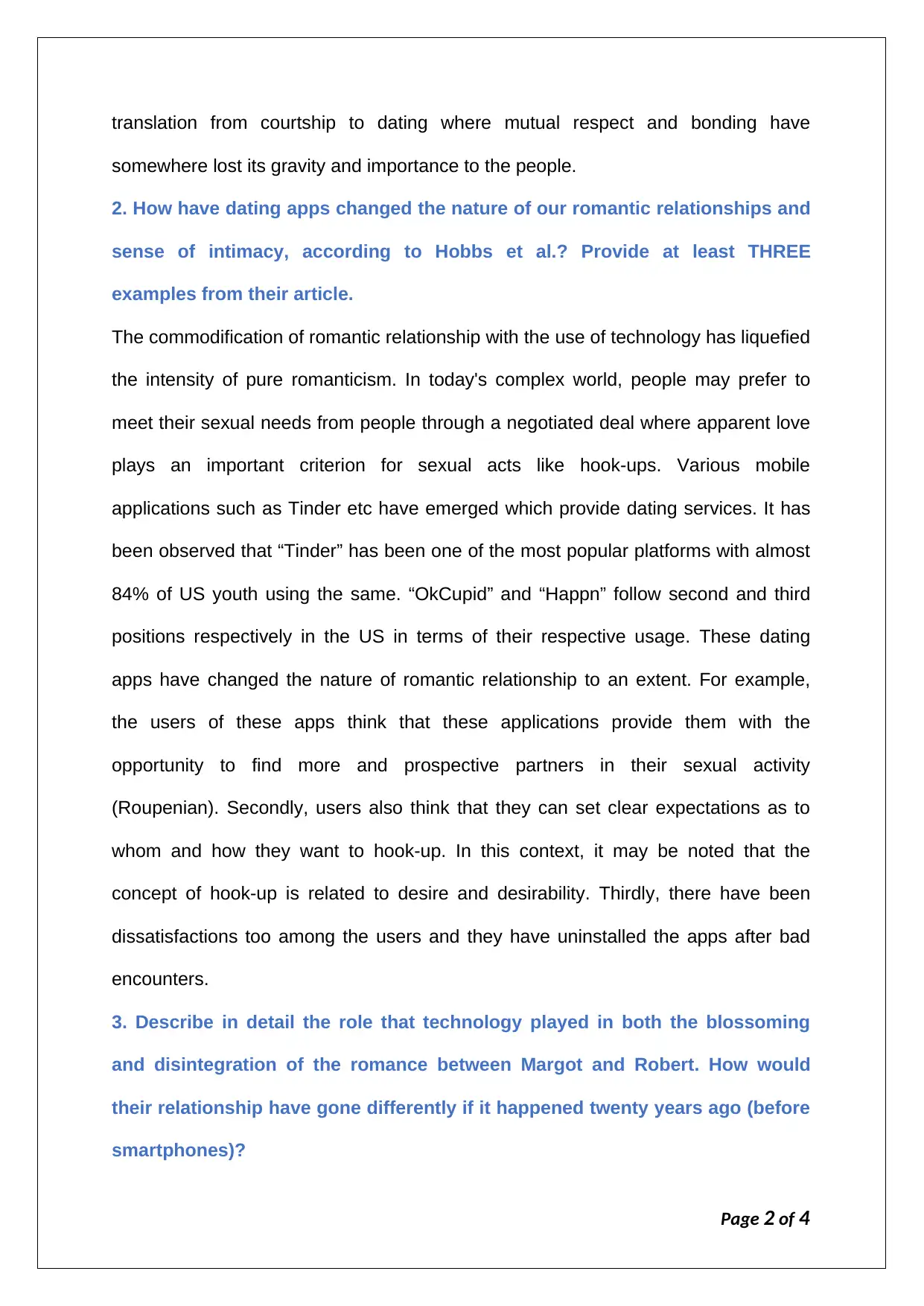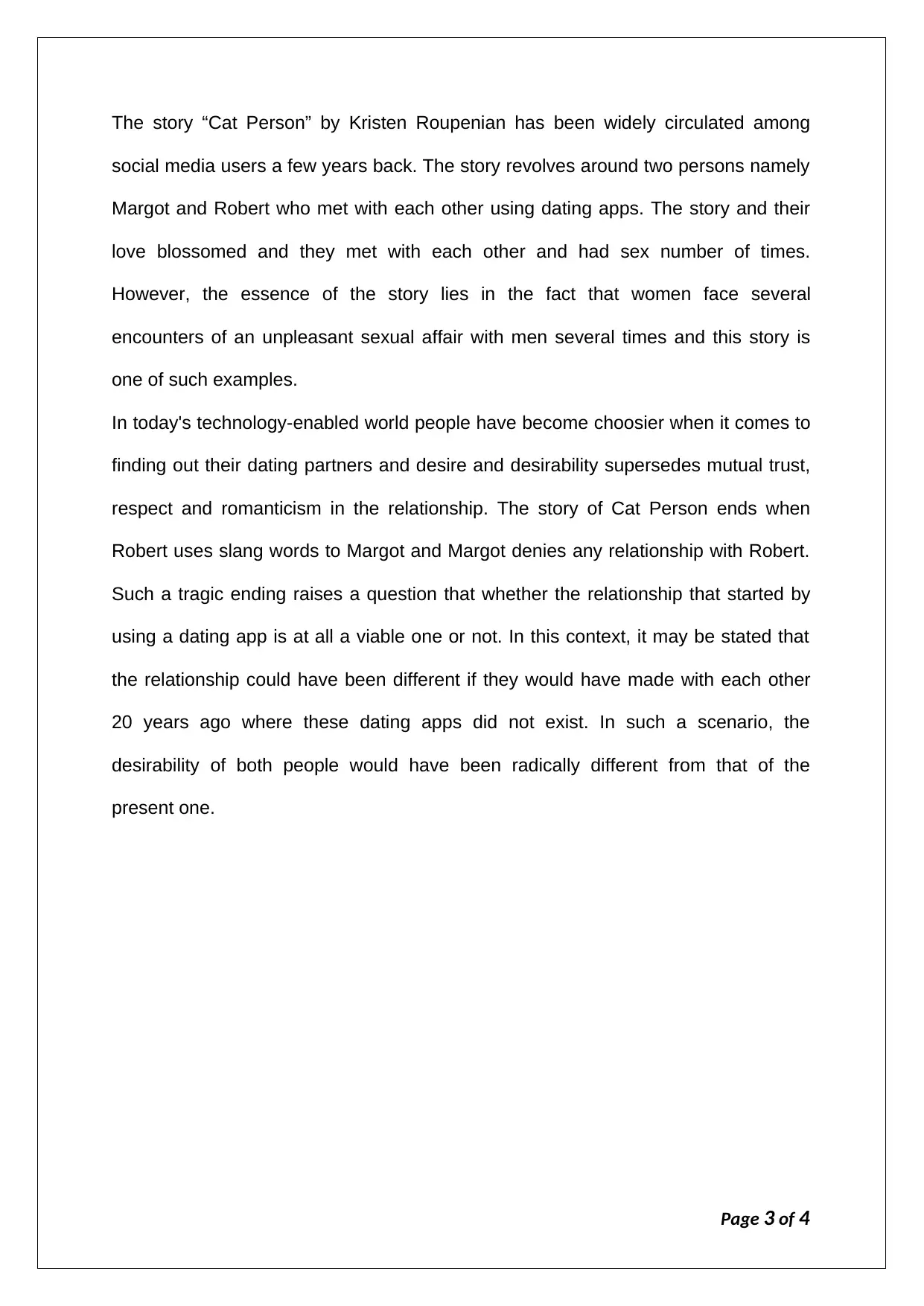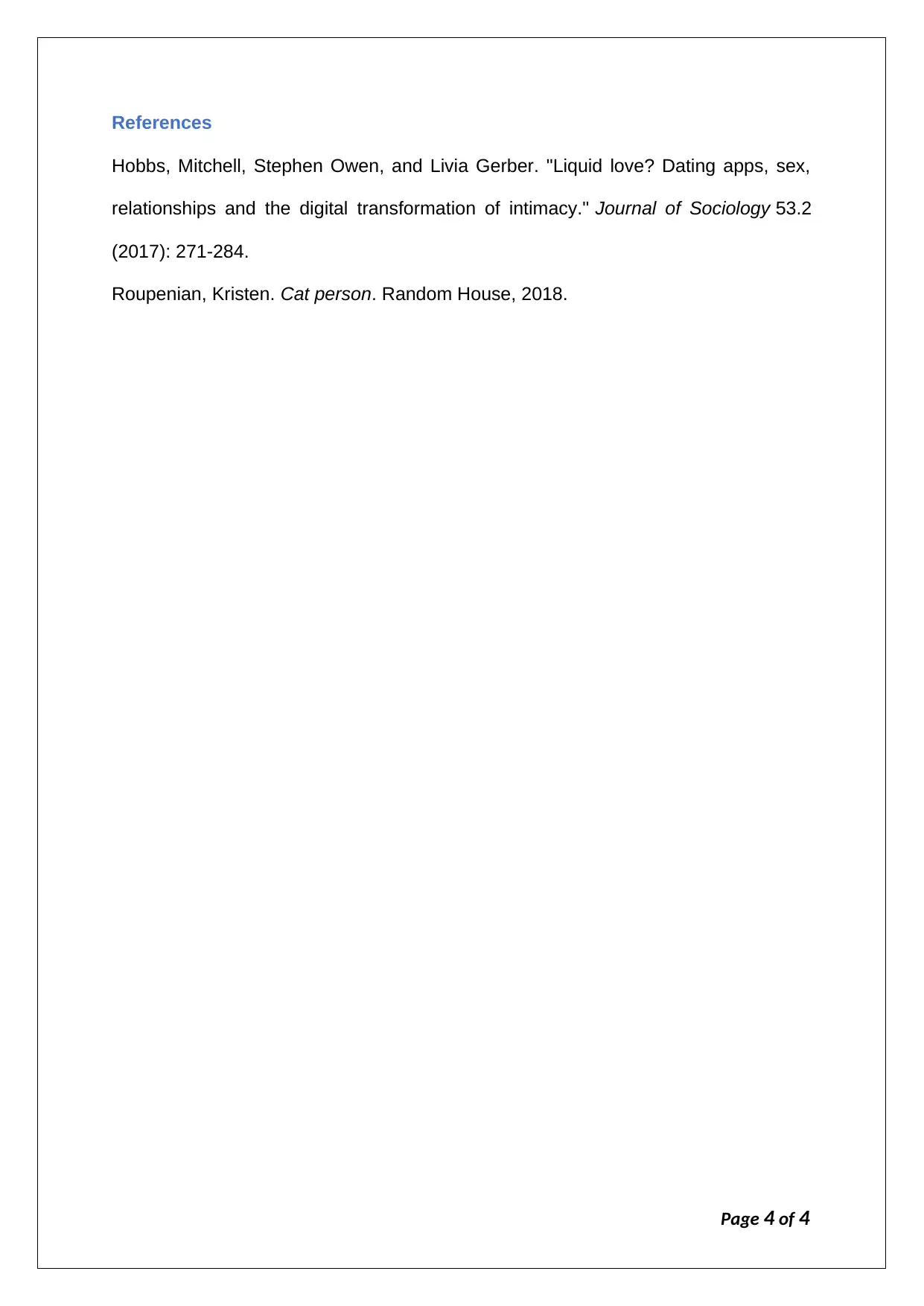Sociology Reading Reflection: Hobbs, Roupenian & Modern Relationships
VerifiedAdded on 2022/07/27
|4
|925
|26
Homework Assignment
AI Summary
This reading reflection delves into the sociological concepts of "liquid love" and "confluent love," as presented in the Hobbs et al. article, examining how dating apps have transformed romantic relationships and intimacy in the digital age. The assignment analyzes how the authors' findings support the notion of liquid love, where relationships are often short-term and driven by immediate gratification, facilitated by technology. Furthermore, the reflection explores the impact of dating apps like Tinder, OkCupid, and Happn, on the expectations and behaviors of users, including the role of technology in the blossoming and disintegration of relationships, exemplified by the story "Cat Person." It contrasts the potential outcomes of relationships in the current technological landscape versus the pre-smartphone era, emphasizing the shift in priorities from mutual trust and respect to desire and desirability. The reflection highlights how technology has commodified romance, influencing how individuals seek and experience intimacy, and how this has changed the nature of relationships.
1 out of 4





![[object Object]](/_next/static/media/star-bottom.7253800d.svg)